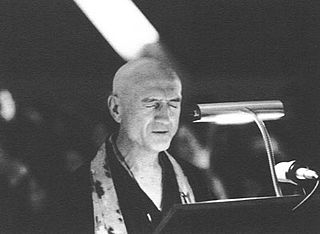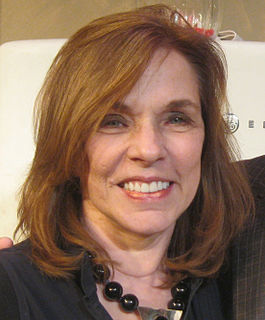A Quote by Maurice Maeterlinck
Most creatures have a vague belief that a very precarious hazard, a kind of transparent membrane, divides death from love; and that the profound idea of nature demands that the giver of life should die at the moment of giving.
Related Quotes
Never follow anybody else`s idea - that is very dangerous because you will become imitative. Always follow your own nature, self-nature; only then will you attain to freedom. It is better to die following one`s nature than to live following somebody`s else`s nature, because that will be a pseudo life. To die following one`s nature is beautiful, because that death too will be authentic.
Frankenstein feels like an ancient tale, the kind of traditional story that appears in many other forms. It appeals to something very primal, but it's also about profound things, the very nature of life and death and birth - about, essentially, a man who is resisting the most irresistible fact of all, that we will be shuffling off this mortal coil.
To be reborn hourly and daily in this life, we need to die — to give of ourselves wholly to the demands of the moment, so that we utterly "disappear." Thoughts of past, present, or future, of life and death, of this world and the next, are transcended in the superabundance of the now. Time and timelessness coalesce: this is the moment of eternity.
I found the experience of falling in love or being in love was a death: a death of everything. You kind of watch yourself die in a wonderful way, and you experience for the briefest moment - if you see yourself for a moment through their eyes - everything you believed about yourself gone. In a death-and-rebirth sense.
I found the experience of falling in love or being in love was a death, a death of everything. You kind of watch yourself die in a wonderful way, and you experience for the briefest moment – if you see yourself for a moment through their eyes – everything you believed about yourself gone. In a death-and-rebirth sense.
We are left with nothing but death, the irreducible fact of our own mortality. Death after a long illness we can accept with resignation. Even accidental death we can ascribe to fate. But for a man to die of no apparent cause, for a man to die simply because he is a man, brings us so close to the invisible boundary between life and death that we no longer know which side we are on. Life becomes death, and it is as if this death has owned this life all along. Death without warning. Which is to say: life stops. And it can stop at any moment.
No one wants to die. Even people who want to go to heaven don't want to die to get there. And yet death is the destination we all share. No one has ever escaped it. And that is as it should be, because Death is very likely the single best invention of Life. It is Life's change agent. It clears out the old to make way for the new.
The world was full of beauty. She wanted to grab hold of it and take it down into her bones. Yet always it seemed beyond her grasp. Sometimes only by a little, like now. The thinnest membrane. Usually, though, by miles. She couldn’t expect to be that kind of happy all the time. She knew that. But sometimes you could. Sometimes you should be allowed a tiny bit of joy that should stay with you for more than five minutes. That wasn’t too much to ask. To have a moment like this, and be able to hold on to it. To cross that membrane, and feel alive.



































